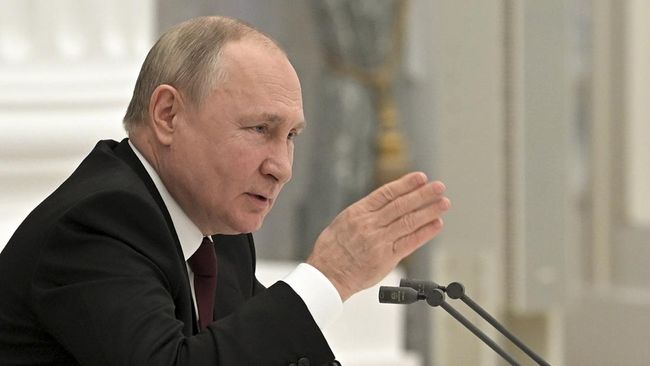Jakarta, CNBC Indonesia – The Russian government has threatened to pay international bondholders denominated in rubles instead of US dollars, days before maturity.
Anton Siluanov, Russia’s finance minister, said on Sunday that it would be “absolutely fair” for Russia to make all payments on its sovereign debt in rubles until western sanctions that he claims have frozen $300 billion of Russia’s foreign reserves are lifted.
Moscow is scheduled to make interest payments of US$ 117 million or equivalent to Rp 1.68 trillion (Rp 14,350/US$) this Wednesday in two dollar-denominated bonds, according to JPMorgan. The bond contract does not give Russia the option to pay in rubles, according to the Wall Street bank.
The latest warning to foreign bondholders increases the likelihood the country will default on its debts for the first time since Russia’s 1998 financial crisis to domestic investors, while for foreign bondholders it is the first in more than a century.
“We need to pay for imports [untuk barang-barang] critical [seperti] food, medicine, various other vital items,” Siluanov said in an interview with state television Financial Times. “But the debt that must be [pemerintah] pay to countries that are not friendly with the Russian Federation and have restricted the use of foreign currency reserves – [pemerintah Rusia] will pay off debts to these countries in rubles,” he said.
Siluanov said that nearly half of Russia’s $643 billion foreign exchange reserves had been sanctioned, but did not disclose the denomination and jurisdiction in which Russia holds the foreign currency.
Investors have been preparing for Russia to default (default), with both bonds trading around 20 cents per dollar. Moscow will have a grace period (grace period) 30 days to make a coupon payment.
In addition to debt conditions that may fail to be paid, due to chaotic financial market conditions, dozens of asset management companies have had to freeze funds with significant exposure to Russia, while several others had to be willing to have their asset values fall sharply.
There has been an exodus of Russian assets since the invasion, as the US and the European Union have sought to sever Russia’s ties to the global financial system. Moscow’s stock market has been closed since February 28, while shares of Russian companies listed abroad have also fallen. The ruble is down more than 45% this year, and could mark the biggest annual decline since 1998, when Russia defaulted on debt in its local currency.
IMF managing director Kristalina Georgieva in an interview with US television stations Sunday (13/3) yesterday said that “in terms of payment of debt obligations, I can say that we no longer consider default Russia as an impossible event “.
Western investors’ views of Moscow’s ability to pay its debts have changed drastically. Prior to invading Ukraine and being subject to economic sanctions, Russia was rated investment-grade on Fitch, S&P Global and Moody’s Investors Service – the three main rating agencies – through February 25.
Early last February, Russia kept US$ 311 billion in foreign securities, US$ 152 billion in cash and deposits in foreign banks, US$ 30 billion in special deposit receipts at the IMF, and an additional US$ 132 billion in gold. Russia has slashed its dollar holdings from 45% of its total stake in 2013 – a year before the first western sanctions over its annexation of Crimea – to just 16.4% in 2021.
The central bank publishes data on the structure of Russia’s foreign reserves with a gap of at least six months. In June 2021, the euro made up Russia’s 32.3% holdings, the renminbi 13.1%, the pound sterling 6.5%, other currencies 10% and gold 21.7%.
China holds 14.2% of Russia’s reserves, the largest of any country, with Japan holding 12.3% and Germany 11.8%.
Siluanov claimed western countries were pushing China to limit the use of Russia’s renminbi reserves, but said he was confident Beijing would not bow to the pressure. “I think our partnership with China will allow us to maintain the cooperation we have achieved and enhance it when western markets close,” he said.
CNBC INDONESIA RESEARCH TEAM
(fsd)
–


